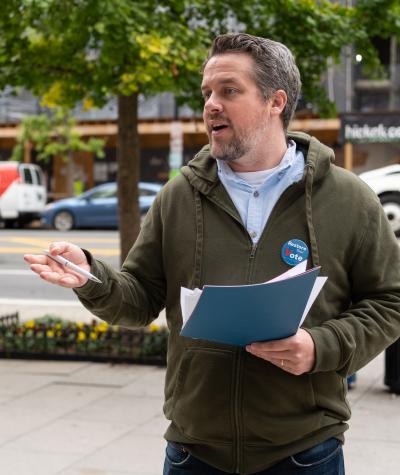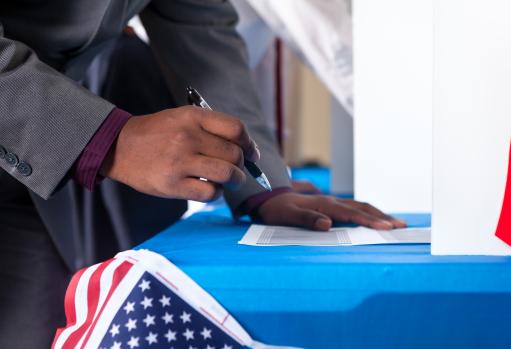Campaign Legal Center (CLC) believes that democracy works best when all citizens can vote without barriers. That’s why CLC works to remedy state policies that make voting more difficult.
Iowa has been in the news lately, and for all the wrong reasons. Most news reports have focused on the mishandling of its important responsibility to conduct a fair and transparent first-in-the-nation primary. It has been noted that the state’s controversial caucus system has allowed numerous accessibility challenges to fester. Still, there is more to the story.
Iowa is first in the nation to vote, but last in the nation on voting rights for formerly incarcerated people.
Iowa currently the only state that permanently bans people with felony convictions from voting absent an individual grant of clemency from the governor.
An eye-popping 52,000 people are disenfranchised in the state. That is 2% of the total state population, which includes 10% of the statewide voting-age black population. Iowa — like most states — lacks public education resources for people to check their voting eligibility. CLC launched the Restore Your Vote Iowa campaign to fill this gap and ensure that people knew their voting rights eligibility and had the opportunity to vote.
CLC’s Restore Your Vote campaign hired organizers in Iowa to assist individuals by walking them through the rights restoration process, helping people submit a rights restoration petition to the Governor.
One of those people was Jacob Shepard, a man with a felony conviction from Waterloo, Iowa. Restore Your Vote organizers worked with Shepard by assisting him with the application for clemency. Jacob was profiled by NowThis, a news organization that tells moving stories through video.
The video features Shepard, who talks about what it means to have his voting rights restored. He said it makes him feel like he’s “actually back in society.” He participated in the 2020 caucus and even volunteered for a leadership position, becoming a delegate for his county party. It was a true breakthrough in his journey back from drug dependence and incarceration.
Shepard’s story is one of many. Leroy Pingel, Travis Fugere and Rachel Manna were also able to have their voting rights restored after working with CLC.
Self-perception is an important part of reintegration: those who succeed in avoiding re-committing crimes learn to see themselves as law-abiding members of community by voting. One of the factors influencing self-perception is how society-at-large sees you. Restoring voting rights may play an important role in allowing citizens with past felony convictions see themselves as productive and valued citizens in a community.
While CLC is thrilled to have assisted 250 people in Iowa, and to have helped people like Shepard exercise their rights in the 2020 presidential election, a more permanent solution is necessary to address the underlying problem. We encourage the Iowa legislature to approval and send to the ballot a constitutional amendment that will restore voting rights to people who have completed their sentence. In the meantime, Governor Kim Reynolds should sign an executive order to restore voting rights automatically to people who have completed their sentence.
Only a systemic solution like this would break down the paperwork barrier standing between eligible Iowans and the ballot box, easing the burden for both the state and its voters.

